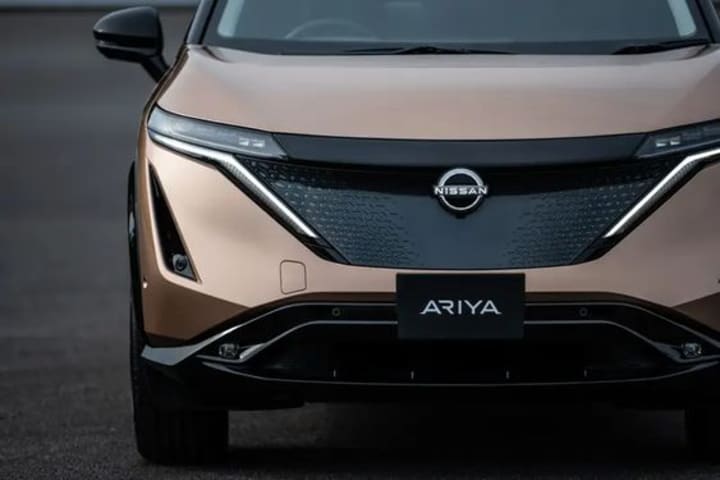Nissan financial performance now: VERY HELPFUL
Insights into Nissan's Current Financial Performance: Key Factors and Future Outlook
Nissan, the multinational automotive manufacturer, has faced a challenging financial situation in recent years. As of now, Nissan's financial performance continues to reflect the impact of the COVID-19 pandemic, as well as ongoing restructuring efforts aimed at improving the company's profitability.
In May 2021, Nissan reported a net loss of ¥448.7 billion ($4.1 billion) for the fiscal year ending March 2021, marking its fourth consecutive year of losses. This decline in financial performance can be attributed to a number of factors, including the pandemic-induced slowdown in global automotive sales, increased competition from other automakers, and the aftermath of the arrest of former Chairman Carlos Ghosn in 2018.
Despite the challenges faced by Nissan in recent years, the company has remained committed to innovation and growth. One of the key strategies for improving its financial performance is investing in electric vehicles. Nissan aims to launch eight new EV models by 2023, including a new electric version of its popular crossover SUV, the Qashqai.

CLICK HERE TO CHECK THIS NEW VIDEO FROM NISSAN
The Nissan Ariya, a new all-electric SUV, is also generating excitement among consumers and industry experts alike. The Ariya is set to be a game-changer for Nissan, offering a sleek design, advanced technology, and an impressive range of up to 300 miles on a single charge. With production set to begin in late 2021, the Ariya is expected to drive growth in key markets such as China and Europe.

CLICK HERE TO CHECK THIS NEW VIDEO FROM NISSAN
In addition to its electric vehicle strategy, Nissan is also focusing on other areas of innovation, such as autonomous driving technology and connected car services. The company has partnered with other industry leaders to develop advanced driver assistance systems and other technologies aimed at improving safety and convenience for drivers.
Furthermore, Nissan has also undertaken significant cost-cutting measures in recent years to help improve its financial performance. The company has reduced its global workforce and closed several production facilities to streamline its operations and increase efficiency. These efforts have already begun to bear fruit, with Nissan's operating profit margin rising from 0.1% in the fiscal year ending March 2020 to 3.3% in the fiscal year ending March 2021.
In addition, Nissan has also made changes to its corporate leadership in recent years, with the appointment of new CEO Makoto Uchida in late 2019. Uchida has emphasized the need for a clear strategic vision and improved decision-making processes within the company, as well as greater collaboration between Nissan and its alliance partners Renault and Mitsubishi.
Despite the ongoing challenges faced by Nissan, there are reasons for optimism regarding the company's financial performance. Its investment in electric vehicle development, coupled with cost-cutting measures and strategic partnerships, is positioning it for long-term success in the global automotive market. Additionally, the gradual recovery of the global economy from the COVID-19 pandemic is expected to lead to increased demand for automobiles, which could benefit Nissan and other automakers.
However, the road to financial recovery for Nissan is likely to be a long and challenging one. The company will need to continue to innovate and invest in new technologies and products, while also maintaining a focus on cost management and efficiency. It will also need to navigate a rapidly evolving competitive landscape, as traditional automakers face increased pressure from new entrants such as Tesla and other tech companies.
Moreover, Nissan has been expanding its global reach through strategic partnerships and alliances. In 2020, the company announced a new partnership with Chinese automaker Geely to develop a new line of electric vehicles for the Chinese market. This partnership is expected to help Nissan gain a stronger foothold in the world's largest automotive market.
Nissan has also been working closely with its alliance partners Renault and Mitsubishi to improve efficiency and profitability. The three companies are sharing more resources and technology, and are jointly developing new vehicles and technologies to reduce costs and increase competitiveness.
Despite these positive developments, Nissan still faces significant challenges in the near term. The ongoing COVID-19 pandemic continues to disrupt global supply chains and demand for automobiles, while rising raw material costs and global chip shortages are creating additional headwinds for the industry.
Furthermore, Nissan will need to navigate a rapidly evolving regulatory landscape, with governments around the world increasingly focused on reducing emissions and promoting electric vehicles. This presents both opportunities and challenges for Nissan, as the company seeks to balance its traditional strengths in gasoline-powered vehicles with its growing capabilities in electric and autonomous vehicles.
Moreover, Nissan is also investing heavily in research and development to improve the performance and efficiency of its vehicles. In 2020, the company announced a $17.6 billion investment over the next five years in the development of new electric and autonomous vehicles, as well as other advanced technologies. This investment will help Nissan stay ahead of the curve in the rapidly evolving automotive industry and position it for success in the long term.
Nissan is also expanding its focus on the Chinese market, which has become the world's largest market for electric vehicles. In 2020, the company launched the all-electric Ariya SUV in China, which has received positive reviews and strong sales. The Ariya is part of Nissan's broader strategy to expand its lineup of electric vehicles and capture a larger share of the global market.
Despite these positive developments, Nissan still faces challenges in the short term. The COVID-19 pandemic has disrupted global supply chains and demand for automobiles, while rising raw material costs and global chip shortages are creating additional headwinds for the industry. In addition, Nissan must navigate a rapidly changing regulatory landscape, as governments around the world increasingly focus on reducing emissions and promoting electric vehicles.
In conclusion, Nissan's financial performance is closely watched by investors and industry observers alike. While the company has faced significant challenges in recent years, its focus on innovation, research and development, and expanding its electric vehicle lineup suggest that it is well-positioned for success in the long term. By investing in advanced technologies and expanding its global reach, Nissan is demonstrating its commitment to remaining a leader in the automotive industry and meeting the evolving needs of consumers around the world.
About the Creator
Enjoyed the story? Support the Creator.
Subscribe for free to receive all their stories in your feed. You could also pledge your support or give them a one-off tip, letting them know you appreciate their work.





Comments
There are no comments for this story
Be the first to respond and start the conversation.